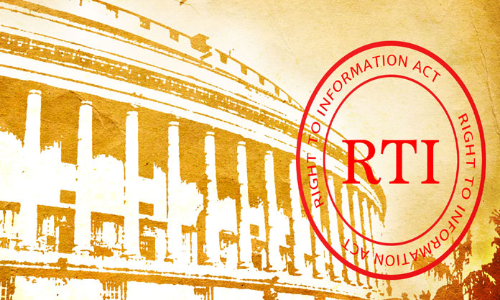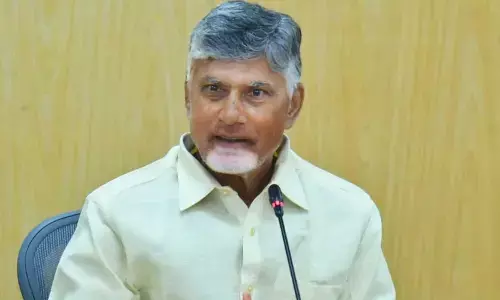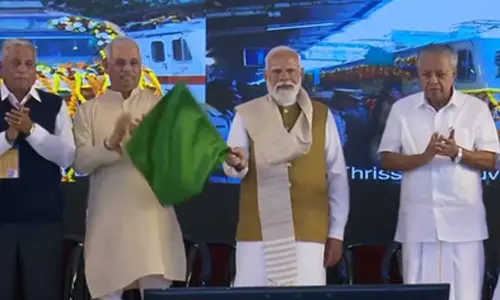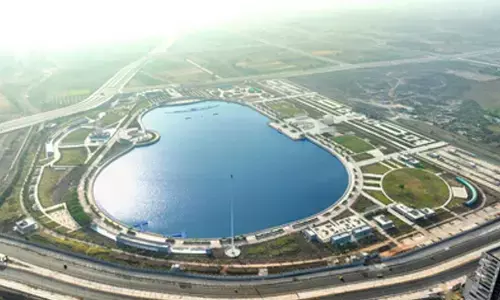Apex court opposes amendment to RTI

The scheme of RTI Act contained in its Sections 7 and 19 provides a timebound legislation for effectively exercising the fundamental right to information guaranteed in Article 19 of the Constitution of India
RTI Act is the best enactment, but it is not giving best results in securing the access to public records. Why? The problem is that neither the Central government in respect of CIC nor the State government in respect of SICs, are filling the vacancies for the appointment of Commissioners in a timely manner, leading to stifling of the functioning of RTI Act and huge backlogs of appeals and complaints in many Commissions across the country. Ignoring or neglecting vacancies reflects disinterest of the governments in implementing the RTI of the people.
The scheme of RTI Act contained in its Sections 7 and 19 provides a time-bound legislation for effectively exercising the fundamental right to information guaranteed in Article 19 of the Constitution of India.
The CIC and SICs which are the final appellate authorities under the RTI Act and are the guardians of the Act are taking many months, and in some cases even years, to decide appeals and complaints due to accumulation of pending appeals/complaints.
Reason is large number of vacancies in SICs across India. The apex court’s order of 15th February 2019 addressed this rattling problem. This order is hoped to have an effect of mending the anti-RTI attitude of Governments to a great extent.
The SC told the Centre and states to take specific measures that will stall their strategies to dilute RTI. It also spoiled the attempts of the Centre to strike at the roots of the Information Commissions wholesale by a contemplated Bill, 2018, which could deny the access right. The apex court opined that Centre shall continue CIC with the same status of CEC as prescribed in RTI Act.
Almost all the governments, including the Centre are adopting four ‘D’s – delay, deny, dilute and damage the RTI. Firstly, they allow vacancies to remain until courts issue writs in PILs. Secondly, they appoint only loyal bureaucrats without looking into other eight fields mentioned in RTI Act.
Thirdly, try to keep the commissioners under Damocles sword of reducing their status to make them feel as glorified clerks in the Commissions also. Fourthly, the government lawyers will file writ petitions against disclosure orders and penalties of CIC to stall access to information for years together.
As different Ministries knock doors of High Courts, the SICs and CIC are compelled to appoint their own government lawyers to fight Attorney General or Solicitor General or some other senior government advocates to defend the orders of the ICs, who were made respondents in thousands of writ petitions. This is an indirect pressure on ICs not to give information to the citizens.
The Supreme Court in its landmark judgement dated 15th February 2019 has addressed these issues substantially and gave its mind that it would not allow any dilution of RTI. The CIC and SICs can effectively enforce access right only if they are manned by independent persons, with track record of transparency and integrity. These are prescribed qualifications for practical reasons.
The apex court came to the rescue of the RTI Act and the IC institutions under it. Senior advocate Prashant Bhushan, representing the RTI activists Anjali, Lokesh and Amritha, pointed out how the governments were diluting this important right by leaving vacancies unfilled, allowing thousands of appeals to pile up and appointing only former bureaucrats in some positions.
The judgement in Anjali Bharadwaj should be potential enough to spoil sinister objectives of political executives all over the nation. Interestingly, the SC has instructed all the governments about transparency in appointments to transparency commissions. In Reserve Bank of India vs. Jayantilal N. Mistry , where a Two-Judge Bench of Supreme Court while upholding peoples’ right to access information, observed:
"Because an informed citizen has the capacity to reasoned action and also to evaluate the actions of the legislature and executives, which is very important in a participative democracy and this will serve the nation's interest better which as stated above also includes its economic interests.
Recognizing the significance of this tool it has not only been made one of the fundamental rights under Article 19 of the Constitution also a Central Act has been brought into effect on 12th October 2005 as the Right to Information Act, 2005…..”
In this context, by reiterating that the RTI is a constitutional right, the Supreme Court categorically said that it cannot agree with the view of government: “The right to information, therefore, is not only a constitutional right of the citizens but there is now a legislation in the form of RTI Act, which provides a legal regime for people to exercise their fundamental right to information and to access information from public authorities”.
Immediate take away of SC judgment in Anjali Bharadwaj is an emphatic rejection of damaging proposal of ‘the RTI (Amendment) Bill, 2018’. After due deliberations and consultations, the RTI Act, 2005 decided a higher status of the information commission to the level of the Election Commission, to secure its independence.
While RTI Act gives a fixed term of five years or 65 years of age whichever is earlier, Bill says term, status and salary will be as prescribed by the Centre or State. The Union Minister for PMO declared that government is bent upon push forward the amendment Bill despite resistance from various sections. Whenever notification for inviting applications for information commissioner posts is issued, the government of the day can change the term, salary and the status.
The government wants to take over control from legislature to regulate the ‘disclosure’. If this Bill is passed the purpose of RTI Act will be defeated. The government cannot ignore the people’s struggle for accessing documents held by administrators.
The bench of Justices A K Sikri and S Abdul Nazeer mandated that the Chief Information Commissioner and the Information Commissioners of CIC be appointed on the same terms and conditions as applicable to the Chief Election Commissioner and the Election Commissioners respectively. At least with this direction, the government should shelve the Amendment proposals permanently. (The writer is former Central Information Commissioner and Professor of Law, at Bennett University, Greater Noida)














